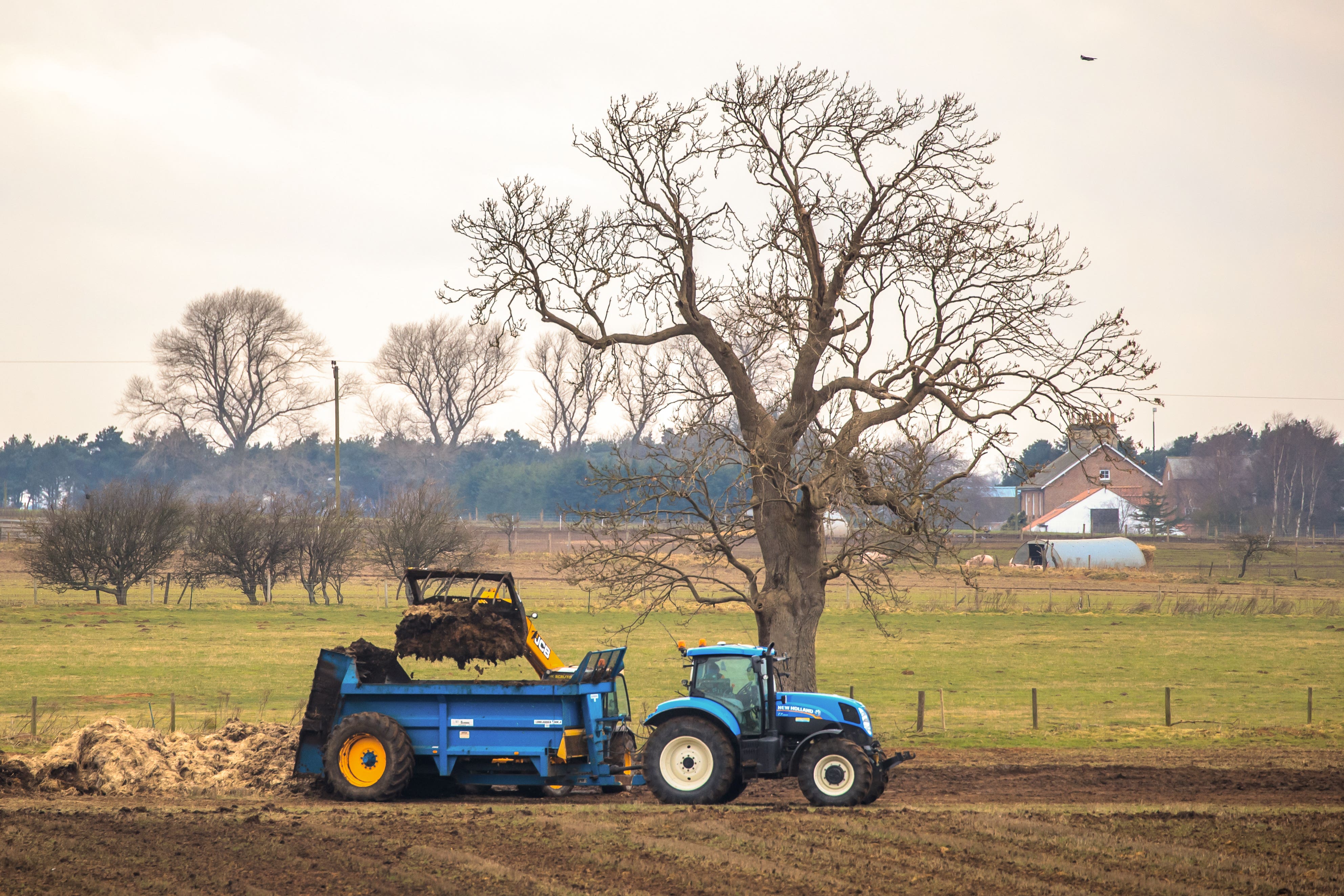Labour and Tories spar over support for the countryside in pitch for rural votes
Environment Secretary and opposite number speak to countryside conference on farming, rural crime and nature protection.

Labour has pledged to treat countryside communities with “respect” and tackle issues including housing and rural crime as the party spars with the Tories for the rural vote.
In a speech to the Future Countryside conference in Syon Park, west London, shadow environment secretary Steve Reed said Labour would devolve power to rural communities and had a plan to give them their “future back”.
But Environment Secretary Stephen Barclay told the delegates from farming, conservation and rural organisations that the election is a choice between those who care for the countryside and those not in tune with rural areas.
Polling suggests Labour is ahead of the Tories in their traditional heartlands but voters in some of the country’s most rural constituencies still think party leaders need to show more respect for their communities.
Mr Barclay said where Labour was in office – such as in Wales – it was not sympathetic to the needs of the rural economy.
For me, the priority for the countryside is to ensure that food production is uppermost, as the golden thread through all our policy
He said his focus was on food production.
“For me, the priority for the countryside is to ensure that food production is uppermost, as the golden thread through all our policy.
“Without that we don’t have food security, without that we don’t have profitable businesses to which the next generation are attracted within the sector.”
Mr Barclay pointed to the new “sustainable farming initiative” (SFI) to pay for nature-friendly farming such as clean water, habitats and healthy soils, equipment grants to boost productivity, labelling to better highlight British produce and extending the badger cull as policies supporting the sector.
And he said: “We are committed to nature, we are committed to the environment, but we are doing so in a way that works with our farming and our food production.”
Mr Barclay added: “I think SFI brings those two things together and that is exactly where our focus has been.”
And he said: “This election is a choice between people who live and represent and care about the countryside and those whose whole careers have been in inner cities, who perhaps visit, and if you look at what’s happening in Wales, what’s happening in their councils, are not in tune with rural communities”.
Speaking earlier in the day, Mr Reed accused the Government of failing to improve rural economies, tackle countryside crime and reverse declines in nature.
He said: “Labour will treat the countryside with respect”, outlining the party’s policies, from its plan for a state-owned clean energy company to greater mental health support, more teachers in schools and a focus on skills, that he said would benefit people in the countryside.
Acknowledging he is not from a countryside background, Mr Reed said: “People from urban areas – like me – will not tell people who live and work in the countryside how they should live their lives.”
New homes will be built with tree-lined streets and access to green spaces and nature on their doorsteps
Mr Reed promised Labour would tackle issues including the housing crisis and rural crime.
He pledged Labour would increase police patrols in towns and villages, adding: “We won’t accept the levels of GPS farm equipment theft and livestock worrying.
“We’ll force offenders who dump rubbish, fly-tip or vandalise our fields to join clean-up squads.”
And he told delegates: “We need more homes but they will not be built at the expense of the environment.”
He said he wanted to see “biodiversity net gain” – the requirement that developers have to boost nature by 10% linked to development – work, adding: “New homes will be built with tree-lined streets and access to green spaces and nature on their doorsteps.”
Mr Reed also pledged to make effective the environmental land management scheme of payments for farmers, which includes SFI, speed up building of flood defences and slash planning decision waiting times to enable farmers, landowners and rural businesses to plug renewables into the grid.
Labour is also committed to restoring nature and would deliver on a legal goal to halt the decline of species by 2030, and the UK’s international commitment to protect 30% of land and seas by the same date, he said.
The next Labour government will act to protect our long-term security by investing in the natural world that is essential to it
“We all need nature but we stand at a moment in history when nature needs us to defend it,” Mr Reed said.
“Without nature there is no economy, no food, no health and no society.
“The next Labour government will act to protect our long-term security by investing in the natural world that is essential to it.”
In a question-and-answer session after his speech, Mr Reed addressed the apparent conflict between land for farming, nature and other uses, saying: “I don’t accept that nature and farming need to be in opposition to each other.
“We have to get them to work together, there are sustainable and regenerative methods for farming that are also productive.”
He also reiterated that Labour would not bring in Scottish-style “right to roam” rules but said access to the countryside could be increased, for example by opening up closed footpaths.
Bookmark popover
Removed from bookmarks